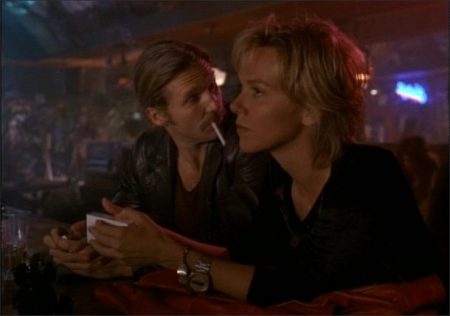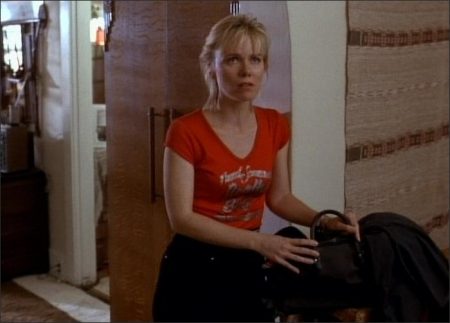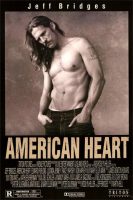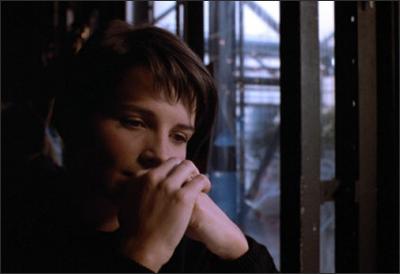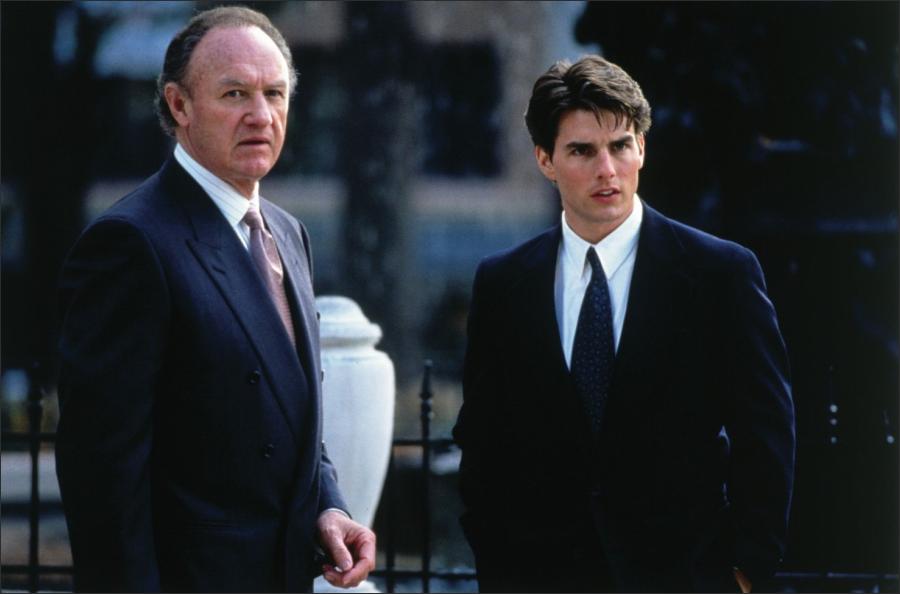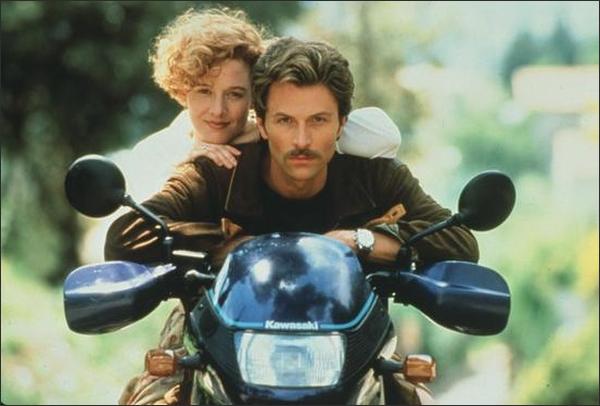Taglines: Jack Kelson is going straight. And his son’s breaking the law to help him.
American Heart movie storyline. Following up on Streetwise, his powerful documentary on the homeless kids of Seattle, director Martin Bell returned to that city for a dramatic feature. Nick Kelson (Edward Furlong) is a troubled teenager whose mother has been dead for many years; he spends much of his time with other throwaway kids roaming the city. When Nick’s father Jack (Jeff Bridges) is released from a long stretch in prison, the father and child reunion is a bumpy one. Jack senses an obligation to his son but is trying to focus on taking responsibility for his own life before he can extend himself. Nick is wary of his father’s criminal.
American Heart is a 1992 film by Martin Bell, starring Edward Furlong and Jeff Bridges. It was nominated for the Independent Spirit Award in a number of categories, and won in the Best Male Lead category. Elements of the screenplay for American Heart was based on material originally covered in the documentary film Streetwise, such as the relationship between Dewayne and his father from Streetwise.
Film Review for American Heart
When Martin Bell made “Streetwise,” his highly praised documentary about teen-age vagrants living by their wits on the streets of Seattle, he conjured up a world of clever scams and survival strategies that seemed almost too good to be true. “American Heart,” Mr. Bell’s fictional film that unfolds in a similarly colorful setting, has remarkable verisimilitude and much of the same gritty, honest spirit.
It would be hard to believe some of the events described here if they did not correspond so closely to the earlier film’s observations, and if they did not also seem so utterly right. This tough, audacious film maker eloquently captures both the bitterness and the promise of his characters’ lives.
“American Heart,” a wrenching, beautifully acted tale of love and redemption, stars Jeff Bridges as a newly released ex-convict who is cornered by the teen-age son he virtually abandoned. Their reunion is given added poignancy by an opening montage of family snapshots in chronological order. Jack Kelson (Mr. Bridges) started out as a handsome, healthy young father, and his son, Nick (Edward Furlong), was once his pride and joy. But a lot went wrong. And now, in the film’s first scene, a surly, dissolute Jack stands washing himself in the restroom at a bus station while Nick quietly implores Jack to become his father again.
It’s time to recognize Mr. Bridges as the most underappreciated great actor of his generation. Although he approaches this potentially showy role without fanfare or ostentation, he has managed to transform himself to an astonishing degree. Looking muscular and mean, sporting chest-length, unkempt hair and a prominent tattoo, he sheds all of the guileless optimism that once colored so many of his performances, instead becoming a sour, suspicious failure who seems lost beyond hope. “Any special skills?” he is asked by a parole officer after he is released from prison, where he has been serving time for robbery. “Naw, I can’t do nothin’,” he replies.
The film’s early scenes between Jack and Nick are so harsh they border on black comedy. Nick, a lonely boy who has eagerly tracked down his long-lost father, is rebuffed in no uncertain terms. It takes a lot of persuasion for him to talk Jack into letting him share Jack’s room at a cheap residential hotel, since Jack grumbles that the boy will cost him an extra $10 a week. Even then, there are problems. Jack grudgingly lets his son have the better of the room’s two mattresses, then moves the boy to the less comfortable spot after Nick falls asleep.
Gradually, Jack tries to put down roots. He gets a job washing windows and sends Nick off to school. (“What school?” the boy asks. “I don’t know; find one,” his father grumbles.) And he pursues Charlotte (Lucinda Jenny), a feisty cabby with whom he feels a particular bond. When he talks Charlotte into visiting his room and finds Nick at home reading a book, he hands the boy some money and shoos him off to an all-night restaurant nearby. A little while later, after Charlotte has rejected him and Nick has straggled back home, Jack angrily demands that money back.
As “American Heart” moves toward a thawing of relations between father and son, it also depicts the bleak, scrappy atmosphere in which these two live. One of the film’s more remarkable episodes shows Molly (Tracey Kapisky), a rebellious little teen-age hooker who lives in the same hotel with her mother, visiting a downtown peep show with some friends and her kid brother in tow. Sneaking past a cashier, they find their way to a booth and begin banging on the glass, badly startling one of the topless dancers. It turns out that this is where Molly’s mother works. And she’s willing to park the kids in her dressing room with a couple of sodas and call it day care.
The actors in many of these scenes (including Ms. Kapisky) are movie newcomers, and they add a lot to the film’s air of authenticity. (This material, from a terse, vivid screenplay by Peter Silverman, can be traced back to a Life magazine photo essay by Mary Ellen Mark, whose work provided the original inspiration for “Streetwise” and who is married to Mr. Bell.) The film’s supporting performances are uniformly savvy and hardboiled, helping to make “American Heart” as powerful an urban tableau as it is a father-son drama.
But the real core of the story rests with its two superb principals. Mr. Furlong, the boy who held his own with Arnold Schwarzenegger in “Terminator 2: Judgment Day,” brings great dignity and a powerful sense of yearning to Nick’s efforts to win over his father. He is equally good at capturing the frustration that sets in once Nick realizes what an uphill battle this will be. And Mr. Bridges, who can make even a fierce, stony expression reveal everything about his character’s inner demons, is at his very best.
American Heart (1992)
Directed by: Martin Bell
Starring: Jeff Bridges, Edward Furlong, John Boylan, Jayne Entwistle, Willie Williams, Melvyn Hayward, Lucinda Jenney, Cristine McMurdo-Wallis
Screenplay by: Peter Silverman, Martin Bell, Mary Ellen Mark
Production Design by: Joel Schiller
Cinematography by: James R. Bagdonas
Film Editing by: Nancy Baker
Costume Design by: Beatrix Aruna Pasztor
Set Decoration by: Rondi Tucker
Music by: James Newton Howard
MPAA Rating: R for language and sexual situations.
Distributed by: Triton Pictures
Release Date: May 7, 1992
Hits: 110
